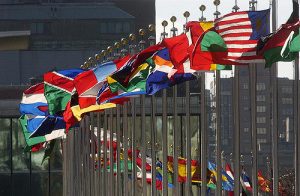
They provoked Me with a non-god…so shall I provoke them with a non-people.[2]
Part of our Selichos shows signs of excessive humility. “We are more guilty than any nation.” We indeed have much to be ashamed of, but is it true that we are worse than all the nations around us? With all our shortcomings, do we not compare favorably with other groups?
The next phrase corrects our mistake. Literally it can be read, “We are shamed from every generation.” We may look relatively good when stacked up against our contemporaries. But we are shamed when we consider every Jewish generation that preceded us. Ours has been an illustrious history – one that our non-Jewish neighbors did not share, and cannot claim anything comparable. If anything, the Gentiles look better than us. They improved upon the ways of their forbears, while we have become lesser people relative to our ancestors!
Our ancestors put themselves and their families to the sword, rather than compromise the purity of their faith. Today, we see parents endangering the faith of their children by sending them to inappropriate schools because they offer some flimsy curricular advantage. These parents then go to shul, and cry out on Rosh Hashanah that Hashem should look to the Akeidah, and employ its merit on behalf or Avrohom’s descendents. How ironic to invoke Avrohom – who was ready to sacrifice his beloved son – while they are not willing to sacrifice the smallest secular advantage to ensure the Yiddishkeit of their children!
The din of the battle had scarcely quieted when the great powers gathered to redraw the map of Europe.[3] All sorts of small ethnic groups – every insignificant bunch of cattle herders, barely lacking their own language and script – were awarded with nationhood, and assigned some territory they could call their own. No one challenged their claim to nationhood. The Jews, however, the nation of the great Prophets, the people of the Book, the nation that gave Torah and light to the world, those whom Paroh of antiquity had already called a nation – when they sought recognition of their national rights, they were met with stiff opposition. The evil neighbors in the region of their territorial claim were filled with fury. The better of the other nations paused to consider whether there was justice to a claim of Jewish nationhood. Some Jews themselves were taken in by the process, and they too asked whether Jews should be considered to be a people, or only a faith-community!
Is this a bad joke, that the group most historically entitled to the status of people should have its bona fides checked – and usually disapprovingly? It this just the lot of the persecuted Jews?
Not at all. It is, in fact, Divine Providence at work. Indeed, there is no question that we are a nation. Three aspects – three that are really one – undergird our claim to nationhood. “Yisroel, Orayso, and HaKadosh Baruch Hu – they are one!” When that threesome is vital and strong, no one can gainsay our claim to be a distinct people. When, however, Jews seek to make substitution in that formula, our claim falls on deaf ears. When G-d is replaced by “the national spirit” and Torah by “the new literature,” the prediction of our parshah comes true. “They provoked Me with a non-god” as part of their self-definition, replacing Me with a secular spirit of nationalism, “so shall I provoke them with a non-people.” They will see their claim to be recognized as a distinct people – to which they are more entitled than anyone else – questioned, denied and refuted! They will be called a non-people by the nations of the world.
Every intelligent Jew among us – the frumest of the frum – recognizes and values the “national spirit” of the Jewish people, and the accomplishment of the revival of Jewish literature (at least when it does not conflict with Torah values). They both can serve as valuable tools. But who would be silly enough to turn the tools into essence?
The Jewish people will never accept secular substitution for its patrimony of kedushah!


